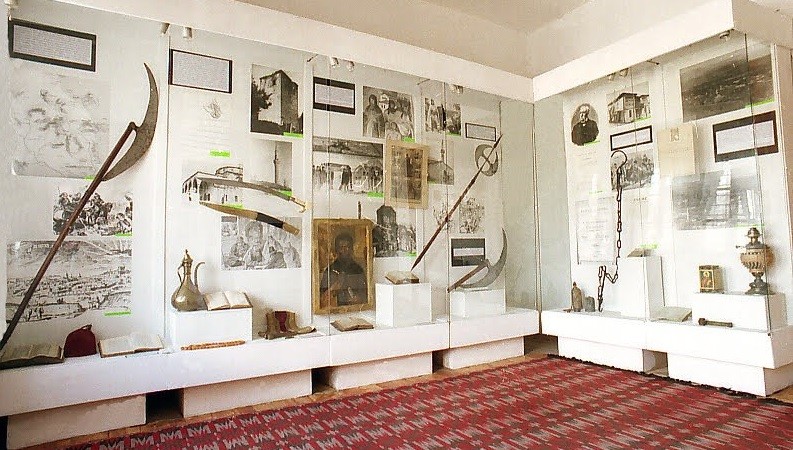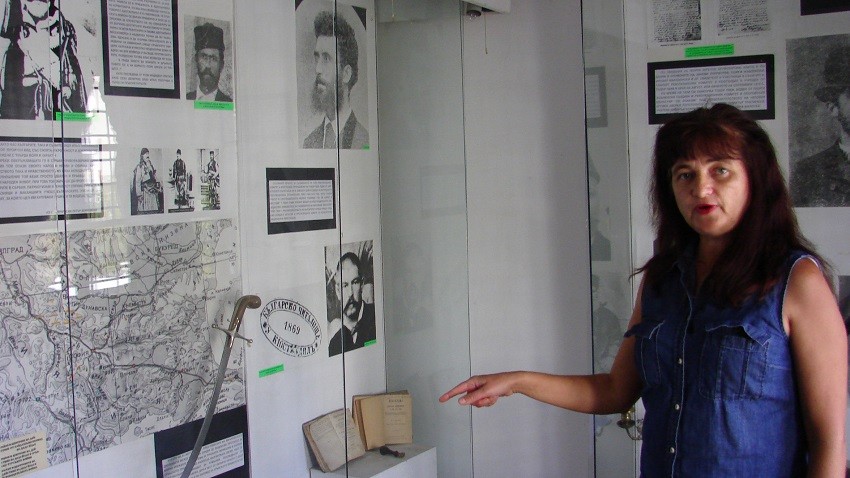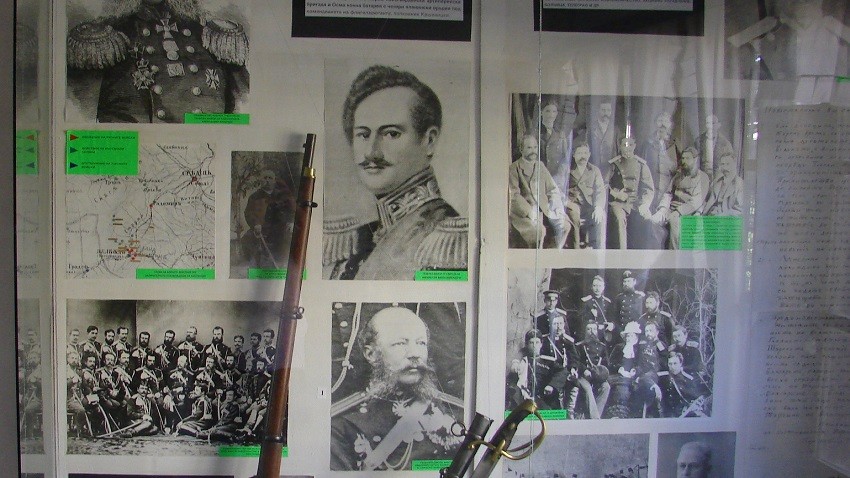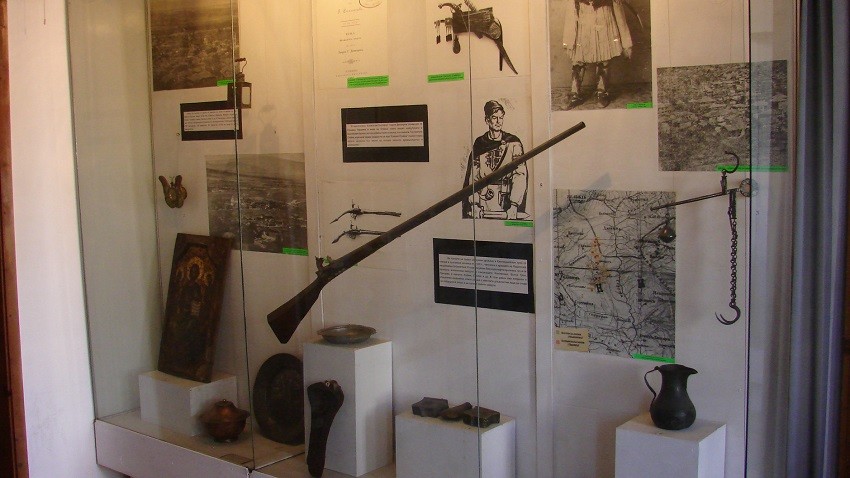Iliya Markov Popgeorgiev is one of the few participants in all stages of liberation processes in Bulgaria – from being a prominent “hajduk” (commander of armed bands) during the years of the Ottoman yoke, to participant in the military battles that brought the Freedom of Bulgaria. People called him “The Voivode of Voivodes” and dedicated songs to him, while his contemporaries described him as being extremely brave, honest and well-meaning man with strong morals and will.

He was born on May 28, 1805 in the town of Berovo (today's Republic of North Macedonia), in the historical region of Maleshevo. In 1850, defending his relatives, he came into conflict with the Ottoman authorities. He gathered a small armed group that was active in the area of Maleshevo, Pianets and Osogovo, and his sister Maria Popgeorgieva was the flag bearer. During the Russo-Turkish War, he was commander of all combined volunteer detachments. He also took part in the Serbo-Bulgarian War (1885), during which he was already 80 years old, but nevertheless grabbed his rifle and enlisted as a volunteer. He was repeatedly awarded orders of bravery. He settled in Kyustendil with his family after the Liberation in 1878. In the late 1970s, the house in which he lived was restored. Today it is a museum dedicated to the national liberation struggles in the Kyustendil region.

"The exhibition opened in 1981," says Veselka Kiskimova, the museum's curator. “We have many photos and materials, with the focus put on the life and work of Ilyo Voivoda. At the age of 20 he became a guard at the Rila Monastery. There he met Neofit Rilski (one of the leading figures of the Bulgarian educational movement in the first half of the XIX century and ‘igumen’ (abbot) of the Rila Monastery in the period 1860-1864) and other enlighteners. He often took walks in the Osogovo Mountain, where he met other fighters for national freedom. In 1877, when the Russo-Turkish War started, Ilyo Voivoda was in hospital with an unhealed bullet wound in his right arm. He received an invitation from the headquarters of the Russian army to join as commander of volunteers, left the hospital and went to the Danube town of Svishtov, where the headquarters was located. After the liberation of Sofia (1877) he participated in liberating the nearby villages of Radomir, Pernik, Dupnitsa. The Russian liberation troops and the armed group of Ilyo Voivoda entered Kyustendil on January 11, 1878. But large Ottoman legions advanced from Kriva Palanka and they withdrew to the Konyavska Mountain where they waited for reinforcements and on January 17 Kyustendil was free. At that moment, Ilyo Voivoda's group numbered 300 men, most of them from his native Maleshevo."

In the exhibition at the Kyustendil Museum one can see weapons and photos of the voivode, of his sons – Ivan and Nikola, as well as of many other Bulgarian revolutionaries. Among them are Vasil Levski and Georgi Sava Rakovski. The museum also has two large paintings donated by their author – famous artist Nikola Mirchev. One shows Ilyo Voivoda and his armed band and the other depicts Rumena Voivoda.

 “She was born in this region, in the village of Gyueshevo in 1829,” Ms. Kiskimova says. “She was very beautiful and active. She decided to join the group of Ilyo Voivoda with her small company, but he did not allow it because he did not want a woman in his band.“
“She was born in this region, in the village of Gyueshevo in 1829,” Ms. Kiskimova says. “She was very beautiful and active. She decided to join the group of Ilyo Voivoda with her small company, but he did not allow it because he did not want a woman in his band.“
If you decide to visit the Museum of National Liberation Struggles in Kyustendil, you could also see around the restored houses of other revolutionary figures from the city – Konstantin Popgeorgiev-Berovski and Tonche Kadinmostki. Together with the house of Ilyo Voivoda, the buildings from the National Revival Period form a complete memorial complex. A monument to Ilyo Voivoda is also seen nearby. 7-meters high, the sculpture made of granite is more than impressive, just like the work and life of the last Bulgarian voivode.
English: Alexander Markov
Photos: Facebook/@RegionalenistoricheskimuzeyKyustendil and Albena BesovskaOn the feast of the Dormition of Saint Ivan Rilski, the Bulgarian Patriarch and Metropolitan of Sofia Daniil led the Divine Liturgy at the Rila Monastery. On the eve of the feast, he bowed before the relics of the patron saint of the Bulgarian people..
Today, August 18, the Bulgarian Orthodox Church marks the Dormition of St. John of Rila – the heavenly patron of Bulgaria. He is the most beloved saint in Bulgaria and is revered even beyond the borders of this country. We associate..
The history of the largest Bulgarian church in Bulgaria from the National Revival period "The Assumption of the Virgin Mary" in the town of Pazardzhik is long and interesting. It is assumed that the first church there was built in the 17th century. It..

+359 2 9336 661
